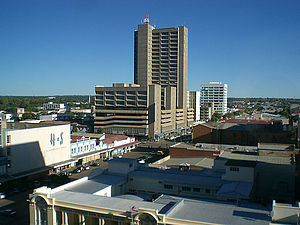By Lungelo Ndhlovu
STRINGENT application conditions for the Youth Relief Fund have prevented many young people in Bulawayo, access to the $17 million funds, set aside by Government to cushion youth-led businesses in mitigating the effects of Covid-19, across Zimbabwe.
Youth applicants of ages between 18-35 years who wished to benefit from the fund are required to provide proof of business operation for a minimum of six months to a year, prior to the ‘first lockdown order’ in the form of invoices, orders, delivery notes and bank statements.
In interviews with CITE, Bulawayo based youth led organisations bemoaned the stringent application conditions for this grant indicating that it prevented many young people from applying and benefitting.
“If it’s a youth grant like this one was, it was meant to benefit all the youths. So, I don’t think there should have been stringent conditions. Their selectin criteria was based on youths who own business of which we don’t have a lot of young people successfully running businesses in Bulawayo due to capitalisation challenges. For instance, when one goes to the youth centred-Empower Bank for a loan to start a business, they encounter drama,” said Yollander Millin, a volunteer for the “We are One Movement” organisation, in an interview.
Millin, is of the view that if the stringent application conditions were the government’s way of trying to account for the Relief Fund grant, it was better to use youths phone numbers instead.
“In a pandemic situation like this one, the youth relief fund should have benefitted all the youths in Zimbabwe instead of segregating a majority due to stringent conditions. Of course, we understand, there is an issue of accountability as to who uses the grant money, but I think there are other ways of having accountability. Nowadays, one can use cell phones that are registered to the youths, to trace how they used the funds. In essence, authorities could have checked their progress from their phone numbers,” she said.
One Bulawayo youth entrepreneur in the business of fixing phones and is formally registered, who preferred to be called Tapiwa, concurred the stringent application conditions made it difficult for him to apply.
“My business is registered, and I have been out of business due to Covid-19. When I heard about the relief fund, I was hopeful it was going to assist me but when I read the application and discovered the stringent conditions, I was put off and didn’t apply,” he said.
Another Bulawayo based youth involved in detergent making, Samkelo Ncube, said even though the Youth Relief Fund was a noble idea by government, she was also put off by the stringent conditions of the application process.
“I’m always on the lookout of such opportunities on the internet but when I arrived at the application stage of the Relief Fund, there were a lot of limiting factors. We are working for hand to mouth, so I didn’t have bank statements proof and I didn’t apply,” she said.
According to the grant terms, the disbursement of the funds shall be a once off payment with registered youth owned businesses eligible for a grant of up to ZWL$5 000.
Youth registered Social Organisations can also receive up to ZWL$3 000, according to the Ministry of Youth, Sports Arts and Recreation.
However, Sondlane Dube, Project Officer of the Youth-led Innovative Engagement with Leadership and Development (YIELD) said with regards to the Covid-19 Youth Relief Fund, government needed to consult with youths first and involve them on the onset and formulation of such programs.
“We need to understand the culture of youths, for example some youths don’t have cell phones or bank accounts. We also need to understand the policy framework as to whatever funds are available, address the actual problems and youths’ needs,” he said in an interview.
Dube, noted that youths in Zimbabwe consist approximately 60 percent of the population, yet were the most economically inactive and suffering more effects of COVID-19.
“Youths suffer the most and there is the need to mainstream their issues first. When we now talk about relief funds and distribution, youths need full knowledge. Funding and including young people on the onset of the programmes and implementation helps them to fully participate and enhance development,” he added.
Giving oral evidence before the Parliamentary Portfolio Committee on Youth, Sports Arts and Recreation in June last year, Dr Thokozile Chitepo, Secretary in the youth ministry indicated that at least $4.8 million out of ZWL$17 million has been distributed to the youth-led businesses across Zimbabwe.
According to information submitted by the youth ministry before Parliament, Matabeleland South had the highest number of 232 successful applicants, who received a disbursement of ZWL$714 000. Harare came second with 222 successful applicants with ZWL$1.1 million disbursed, while Matabeleland North had the least number of applicants, as five only qualified and received a total of ZWL$25 000.

